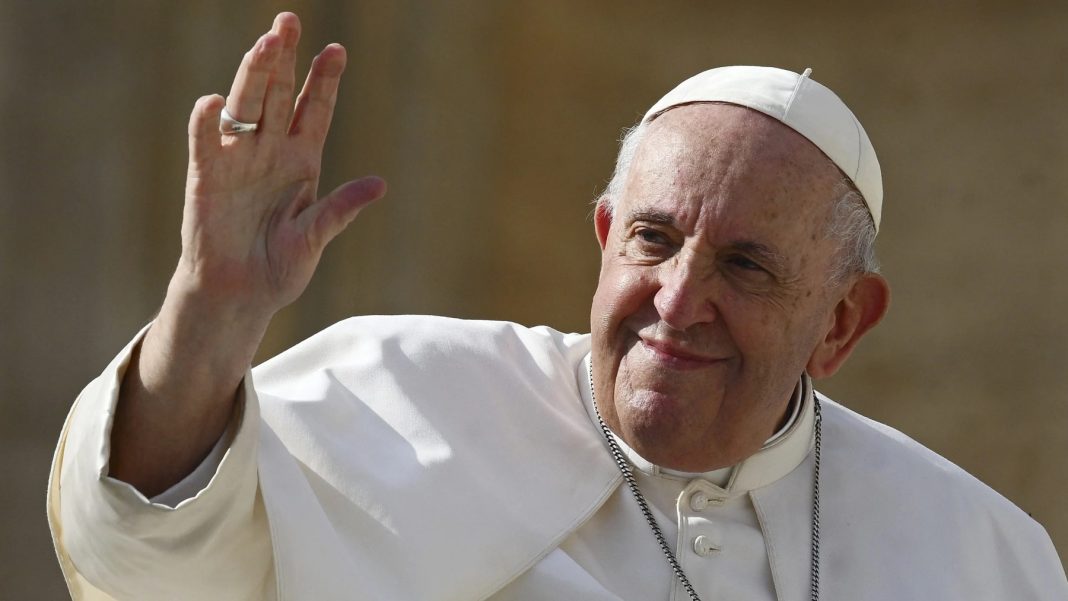VATICAN CITY, Rome – In the final days of his life, Pope Francis emptied his personal bank account, donating 200,000 euros to prisoners—those he had long called his “brothers and sisters behind bars.”
The symbolic gesture, made quietly but with deep conviction, was revealed this week by Bishop Benoni Ambarus, auxiliary Bishop of Rome and director of the Office for Prison Pastoral Care.
“This final act of love captures the very essence of his pontificate,” Ambarus said in an interview with La Repubblica, published on Wednesday, April 23, 2025.
Throughout his papacy, Francis placed the dignity of prisoners at the centre of his ministry, often challenging entrenched attitudes about justice and redemption.
From the earliest days of his pontificate, he made headlines by washing inmates’ feet during Holy Week and calling for reforms in criminal justice systems around the world.
Yet, according to Ambarus, many of these appeals fell on deaf ears.
“Institutions did nothing to give even a small signal,” he said, referring to Francis’s repeated requests for governments to adopt symbolic acts such as modest sentence reductions to encourage rehabilitation and hope.
In a poignant final chapter, Francis visited Regina Coeli, the historic Roman prison, on Holy Thursday—April 17, just days before his death.
“The Holy Father dragged his body there,” Ambarus recounted, a sign of his unrelenting commitment to those often forgotten by society.
One of the most enduring fruits of Francis’s prison ministry was the opening of a Holy Door at Rebibbia prison, an honour historically reserved for major basilicas like St. Peter’s.
The initiative, sparked by requests from inmates themselves, marked the start of a broader pastoral movement that now sees dozens of volunteers—priests, religious sisters and laypeople—entering the prison twice monthly to share Mass, conversation, and human connection with those inside.
“Being there, during and after detention, is often the most powerful gift one can offer,” Ambarus said.
Too many inmates, he noted, serve long sentences without a single visit.
“Small gestures—a letter, a conversation, help with shoes or clothing—can reignite the human dignity that prison walls so often extinguish.”
Despite these efforts, the larger reforms Francis hoped for—more humane conditions and clearer pathways to reintegration—largely remained unrealised.
His death, Ambarus said, left prisoners grieving not just a spiritual leader but a rare advocate. “To them, he was a father figure.”
In a final gesture of gratitude and mourning, a group of inmates sent Ambarus a handwritten letter and a single flower to be laid at the pope’s tomb.
Francis’s generosity extended beyond pastoral care.
When the Office for Prison Pastoral Care sought financial support amid declining Vatican resources, the pope responded from his own savings.
“Don’t worry, I have something in my account,” he told Ambarus, before transferring 200,000 euros for prisoner welfare.
Notably, the cost of his burial was covered by a benefactor—Francis had given everything away.
Even in death, Pope Francis left behind a legacy of radical solidarity with the most marginalised.
For the incarcerated, his memory endures in every act of kindness his ministry inspired—and in the simple knowledge that, at the highest levels of the Church, someone saw them as human.







![Honouring a Rare Soul: Celebrating the Life of AVM Terry Omatsola Okorodudu [MUST READ] Air Vice Marshal Terry Omatsola Okorodudu](https://www.thetrentonline.com/wp-content/uploads/2026/01/Joan-and-Bidemi-Okorodudu-The-Trent-100x70.jpg)